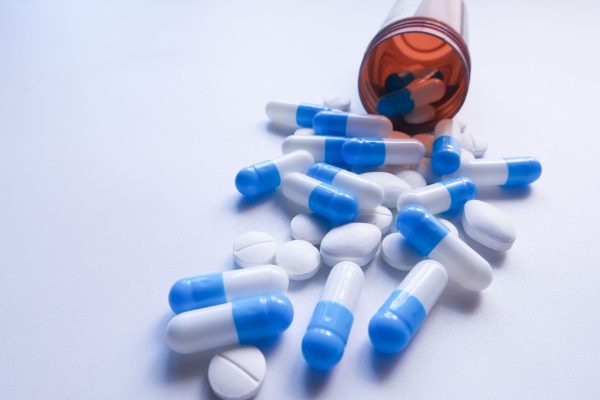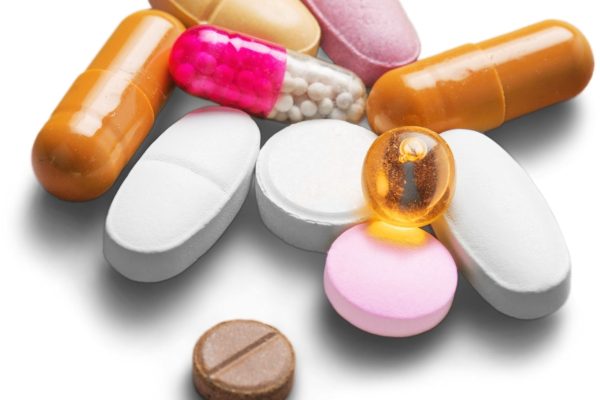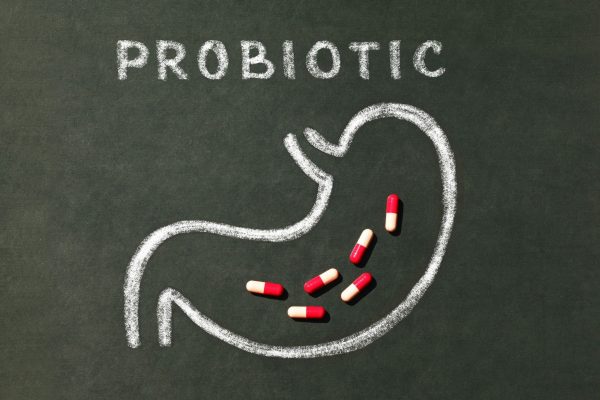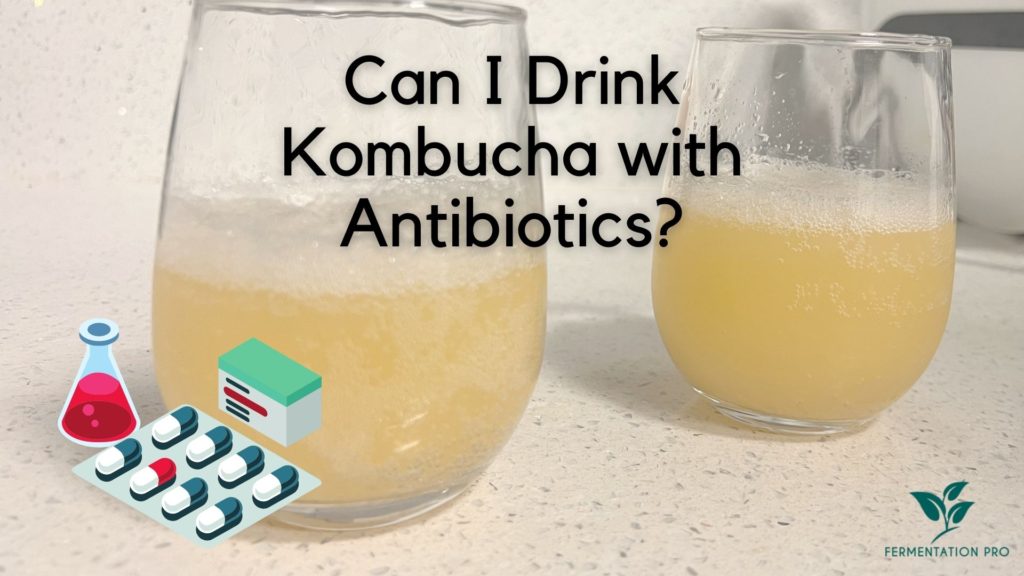If you’ve ever had a health condition caused by bacteria before, then you must be familiar with antibiotics already. Antibiotics are a common type of medication scientifically proven to prevent opportunistic microorganisms from developing and spreading throughout the body.
Although antibiotics are deemed safe and effective, this medicine can still cause adverse side effects that may lead to long-term damage to organs, particularly the digestive tract. Drinking antibiotics can trigger abdominal pain, antibiotic-associated diarrhea, and other gut-related issues. Thankfully, fermented foods like Kombucha can help the body cope with these antibiotics-related side effects effectively.
Consuming Kombucha while you are on antibiotics may still sound like a bad idea to some. We understand that, but hear us out first. In this article, we’ll be going in-depth into the benefits of drinking Kombucha while on antibiotics as well as the proper way of drinking this healthy beverage so you can take full advantage of both your antibiotics and probiotics.
Table of Contents
Is it OK to Drink Kombucha on Antibiotics?

"The short answer is yes. Despite having strong acidity, Kombucha is OK to drink alongside a course of antibiotics. In fact, this drink is not just safe but also extra beneficial to people that take antibiotics regularly."
Antibiotics are antimicrobial substances that prevent bacteria’s growth and replication and kill them completely before they can harm the body. They are known to fight off bacteria within and outside the body that cause various infections like ear infections, strep throat, Urinary Tract Infection (UTI), and many more.
With antibiotics’ high efficacy, we can all agree that it is a necessary type of medication in our lives. However, antibiotics are not perfect. Like other medications, antibiotics have side effects that can affect the body negatively. Two of these side effects are digestive distress and diarrhea. It sounds unrelated, isn’t it? Well, let us explain.
The intestines house trillions of bacteria and other microbes that help break down food, extract vitamins and strengthen the immune system. Collectively, these bacteria and microbes are referred to as the gut microbiota.
"In addition to killing disease-causing bacteria, antibiotics may also kill and drastically decrease the amounts of bacteria in the gut microbiota causing gut trouble and digestive-related problems."
When this happens, digestive distress occurs and antibiotics-related diarrhea takes place. This can also result in unexpected weight gain and obesity.
Because of the potency of antibiotics, it is often prescribed for a short period of time only. Antibiotics are often prescribed for 7 to 14 days depending on the severity of the infection. Even so, its side effects can last longer than this. As a matter of fact, one week on antibiotics can affect the gut microbiota makeup for up to a year.
Luckily, there is a way to minimize the chances of this phenomenon and restore the gut microbiota quicker. This is by taking probiotics-riched substances like Kombucha.
Kombucha contains lactobacilli and saccharomyces probiotics that are proven effective against digestive distress and antibiotics-related diarrhea. These probiotics in Kombucha also promote the regeneration of good bacteria in the gut.
By drinking Kombucha, you can help your body increase the good bacteria in the gut microbiota and keep your digestive system healthy and less prone to distress.
How Much Kombucha Can I Drink While on Antibiotics?
While Kombucha can be extra beneficial for people on antibiotics, it is still best to not drink too much in a day. The daily recommended amount of consumption for Kombucha is only 12 oz. However, if you are already a long-term Kombucha drinker, you may drink up to 16 oz. a day depending on your body’s tolerance to it.
If you are a new Kombucha drinker, 12 oz. might be too much for you so feel free to lower this amount by how much you are comfortable drinking. Drinking a lot of Kombucha as a first-timer may worsen the side effects of antibiotics on your digestive tract so just take your time until your body has fully adjusted to it.

Are There Possible Side Effects of Drinking Kombucha While on Antibiotics?
Drinking Kombucha while on antibiotics is considered safe however drinking too much Kombucha can certainly raise safety concerns. Even if Kombucha improves the gut microbiota, it can still cause adverse effects like bloating, vomiting, and diarrhea if consumed in large amounts. Additionally, too much Kombucha can encourage the growth of opportunistic and infection-causing bacteria in certain people.
Drinking too much Kombucha will not help your gut microbiota in any way so it’s always a better idea to stick to the recommended daily dosage.
Can You Take Probiotics and Antibiotics at the Same Time?
"Probiotics and antibiotics do not go well together when taken at the same time."

Probiotics are classified as a type of bacteria so if you take probiotics and antibiotics at the same time, the latter is very likely to kill the former instantly. It is best to take these two substances a few hours apart to prevent them from canceling each other out.
When Is the Best Time to Drink Kombucha During Antibiotic Treatment?
Generally, doctors recommend a 1 to 2 hours gap between taking antibiotics and probiotics. This means that the ideal time to take Kombucha during antibiotic treatment is one to two hours before or after taking antibiotics.
For instance, if your antibiotics have been prescribed with breakfast, then you should eat your breakfast and take your antibiotics at the instructed time. After taking your antibiotics, you should wait two hours before drinking Kombucha.
The 1 to 2 hours gap gives the body enough time to fully digest the antibiotics and absorb their benefits. After this time, the antibiotics will also become less potent and decrease their capabilities of killing the probiotics. This ensures that the beneficial bacteria will be able to reach the gut alive and well.
For maximum effects, it is advised to take Kombucha every day while you are on antibiotics. Moreover, you should continue drinking probiotics even if you are finished with your prescription in order to restore your gut microbiota to its healthy state before taking antibiotics.
Does Drinking Kombucha Disturb Antibiotic Functioning?
At the time of this writing, researchers haven’t found any negative links between Kombucha and antibiotics. Kombucha is not likely to interfere with antibiotics as long as you drink Kombucha at the right time and with the recommended dosage.
How Much Probiotics Does Kombucha Contain?
"Kombucha contains about 10 billion Colony Forming Units (CFU) of probiotics per gram."
The recommended daily consumption of Kombucha is 12 oz. or 340 grams. This means that the daily amount of Kombucha consumption can give you over three trillion CFU.
When it comes to the daily recommended probiotic dosage, many experts say that 10 to 20 billion CFU per day is already sufficient for maintaining digestive health. Kombucha obviously contains way higher amounts of probiotics than this, so is it too much? The simple answer is no.
Although 10 to 20 billion CFU is already enough to keep the gut microbiota healthy, it is not necessarily the ideal amount for all individuals. Bodies have unique gut microbiomes and can have different reactions to probiotics. Some may even need higher amounts of probiotics every day. Moreover, harmful probiotic overdose isn’t likely to happen even with taking over trillions of probiotics.
Nevertheless, it doesn’t mean that drinking too many probiotics won’t cause any negative effects on your body. You may still experience side effects like bloating, gas, and nausea if you take an amount of probiotics that your body is not used to. That’s why you should always begin drinking Kombucha with minimal amounts so its probiotics won’t cause adverse effects on your body.
While it may sound like more probiotics mean better effects, it is not always the case. Hence, do not consume too much Kombucha if you are not used to it. More importantly, do not exceed the recommended daily dosage.
Is It Better to Drink Kombucha than Probiotics Supplements While on Antibiotics?
Probiotic supplements are commercially manufactured and are often taken as a pill or powder. On the other hand, Kombucha is a naturally fermented beverage made with tea, sugar, and SCOBY. So, which one is better? Well, it is actually a personal choice. Both of these probiotics-enriched substances contain sufficient amounts of probiotics you need while you are on antibiotics.
In terms of convenience, probiotic supplements could be a better option because you can easily take them without having to adjust to any taste. They are also easy to purchase and bring everywhere. However, they do not contain additional benefits that Kombucha contains.
Apart from improving digestive health, Kombucha can also detoxify the body and boost energy. On the downside, it has a strong taste that many newbie drinkers can have a hard time adjusting to. Furthermore, Kombuchas are not built equally. Hence, their benefits can vary depending on their type and brand.
If you are new to drinking Kombucha and are not yet comfortable drinking it daily, you can opt to drink probiotic supplements every other day or every time you are not in the mood for Kombucha.
Can I take Kombucha together with probiotic supplements while on Antibiotics?
Probiotics supplements often contain 1 to 10 billion CFU per dose. However, some may contain up to 50 billion CFU and more. On the other hand, Kombucha can contain more than 3 trillion CFU per 12 oz. of serving.
It is generally safe to drink Kombucha with probiotic supplements while on antibiotics so long as they are taken with the right dosage and a few hours after taking antibiotics. However, if you have an extra sensitive stomach or are not yet used to drinking Kombucha or probiotics supplements you might want to drink these two in minimal amounts first or choose only one. If you have a pre-existing health condition, we highly recommend consulting your doctor first.








